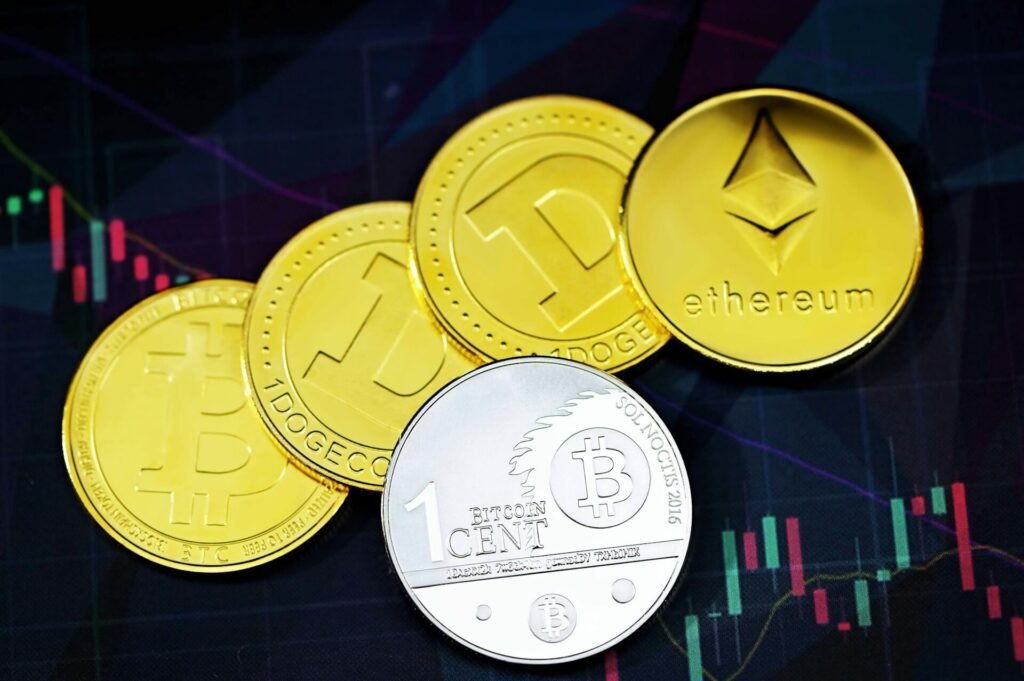So, cryptocurrencies! The digital money that keeps having stakeholders at the edge of their seats every now and then…I mean, bitcoin has been known to soar in value only to drop and then sore again prior to another drop… It takes some getting used to—trust me on that one, and a lot of faith.
That said, what do you understand by cryptocurrency? Well, as mentioned earlier, these are just “digital money” that use encryption to secure their transactions—their main characteristic is is that they operate without a central authority like a bank or government.
Unlike traditional money, these exist purely online and run on decentralized networks—blockchains, which are generally just public ledgers that record every transaction transparently and securely.
While individuals appreciated the idea of a money system outside institutional power, governments have always had mixed reactions to cryptocurrencies—some welcoming them into their financial systems while others impose strict regulations or outright bans. So today, let’s take a current look at where some of the Big-shot countries stand when it comes to cryptocurrency regulations in 2025.
Cryptocurrency Regulations in the Big-shot Crypto Countries.
The United States.
The United States takes a proactive stand at cryptocurrency regulations, focusing on consumer protection, anti-money laundering (AML), and taxation—of course.
In the U.S. the Securities and Exchange Commission (SEC) treats some cryptocurrencies as securities requiring them to follow stock market regulations,
The IRS on the other hand taxes crypto gains and exchanges must register with the Financial Crimes Enforcement Network to comply with the AML laws.
On that note, the U.S. government has shown some interest in a digital Dollar (CBDC), well, until very recently…Trump Bans The Creation Of A ‘Digital Dollar’ – Barron’s
China.
If you are into crypto, China is just not the place for you. The country once had a great and prosperous crypto scene but has since cracked down heavily on digital currencies. In 2021, China’s government banned all crypto transactions and mining, on the grounds of financial risks and environmental concerns. Instead, China now focuses on developing its digital yuan (e-CNY), a state-controlled digital currency aimed at modernizing its payment system.
However, despite the ban, many Chinese citizens still access crypto through decentralized platforms and overseas exchanges…it is money after all, people are going to find ways of accessing it.
Japan.
For the cryptocurrency enthusiasts, this one is yours. Japan is widely known as one of the most crypto-friendly nations with a well-defined cryptocurrency regulatory framework.
The country recognizes Bitcoin and other digital assets as legal property, regulating exchanges under the Financial Services Agency (FSA). Like in the U.S. companies dealing in crypto must also register with the FSA and comply with AML and security standards, a strict but supportive regulatory framework that has made it one of the safest places for crypto investors…
South Korea.
…50-50 on this one. South Korea has implemented comprehensive crypto laws regarding exchanges. For example, the Act on the Protection of Virtual Assets mandates that crypto platforms register with financial regulators and comply with AML guidelines. The government also enforces real-name transactions, in that anonymous trading is prohibited and thus curbing fraudulent activity often associated with cryptocurrencies.
Despite these, crypto is quite popular in South Korea, with many young investors entering the market.
The United Kingdom.
The UK takes a cautious approach to crypto regulation, trying to find middle ground between financial innovation and financial stability. The Financial Conduct Authority requires crypto businesses to register and comply with anti-fraud and AML policies—as mentioned before, the anonymity of some cryptocurrencies has been associated with some fraudulent activities in the past. Crypto scams stole $5.6 billion, growing by 45% – Reuters.
The UK government is also trying to regulate stablecoins so as to integrate them into the financial system securely. that said, crypto trading is legal in the UK, albeit highly risky for unlicensed firms.
Germany.
Germany is one of the first countries to have clear regulations for cryptocurrencies. Their Federal Financial Supervisory Authority, (BaFin) oversees crypto businesses and ensures they comply with financial laws. In Germany, crypto is recognized as a private asset, and long-term holdings of over a year are tax-free, making it an attractive hub for blockchain innovation.
The United Arab Emirates.
The UAE has managed to position itself as a global crypto-friendly hub, especially in Dubai and Abu Dhabi. The country has even introduced a licensing framework for crypto exchanges and blockchain companies, allowing them to operate legally within free zones. The aim is to attract blockchain businesses while ensuring that consumer protection remains a priority.
Singapore.
When it comes to crypto regulation and currencies, Singapore is one of the most progressive countries out there. The Monetary Authority of Singapore (MAS) oversees the industry, requiring exchanges to comply with the Payment Services Act (PSA). They have recently introduced regulations for stablecoins, ensuring issuers meet certain financial criteria.
Despite these, Singapore seems to remain a top destination for blockchain startups.
Nigeria.
Nigeria and Cryptocurrency have been in a longstanding complicated relationship for some time. While the Central Bank of Nigeria initially restricted banks from handling crypto transactions, the Securities and Exchange Commission has since introduced regulatory guidelines.
Cryptocurrency is widely used in Nigeria, especially for remittances and online payments to the point it is Africa’s largest crypto market.
El Salvador.
In 2021, El Salvador made history as the first country to recognize Bitcoin as an official currency. BBC even made an article about it, Fear and Excitement in El Salvador as Bitcoin becomes legal tender.
Thus, businesses must accept Bitcoin alongside the U.S. dollar, in fact, the government even launched a national crypto wallet Chivo Wallet to facilitate transactions. Of course, the move came with international scrutiny but hey, it did also position El Salvador as a pioneer in the digital economy.
As cryptocurrencies continue to evolve and regulations keep getting revised, crypto investors and businesses have to keep informed to avoid legal battles—knowing the legal landscape can potentially save you a lot of headline appearances. Hopefully, this has provided some insight.




